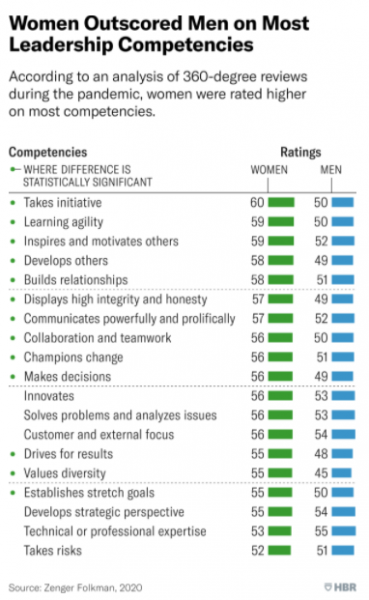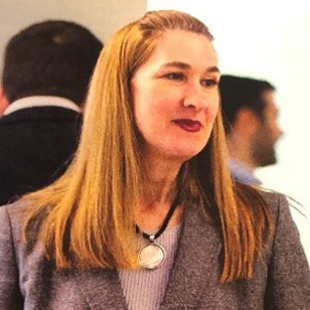Women’s Leadership: Inspiring change through learning
Strong leadership is critical for effective organizational, team and individual performance. So why, one might ask, should we single out women leaders? Why not just look at leadership holistically and not separate out any group? The reason is simple: whilst leadership principles and theories remain the same, the issues facing our female leaders are particular. Realities such as misogyny, pay gaps, uneven opportunities for growth, family pressures and expectations, and cultural norms, to name a few, create extra challenges for them.
When women lead
Despite this, the role of women in leadership has proven instrumental to an organization’s success. Research studies have shown that diversity in the workforce and leadership brings different perspectives to an organization, which, in turn, boosts creativity and encourages innovation and the search for new ways of doing things. This then leads to better decision-making and, in the end, greater overall success.
It is also interesting to point out that several studies have shown that women have outscored men on most leadership competencies both in times of crisis - Research: Women Are Better Leaders During a Crisis as well as in normal times- Women Matter: Ten years of insights on gender diversity. It, therefore, only makes sense for organizations to invest in building women leaders, their networks, and pipelines, as well as look at the systems, policies, and structures in place, in order to do all that is necessary to leverage this diversity in the workforce and ensure that women have seats at the decision-making table.
Gender barriers and biases
Despite all of these successes and positive contributions, though, women historically (and to-date) have faced greater barriers than men. Although some improvements have been made over the years, women still experience discrepancies such as a gap in support from mentors in securing top positions and for career advancement more generally. There is also a lack of access to personal connections that men have, which help with career development - Women in Leadership: Why It Matters. This disparity remains ever-present, with many more areas of betterment still needed. According to UN Women and based on data found in the Commission on the Status of Women Sixty-fifth session 15–26 March 2021:
“The data is clear. Despite women’s increased engagement in public decision-making roles, equality is far off: women hold about 21 percent of ministerial positions globally, only three countries have 50 percent or more women in parliament, and 22 countries are headed by a woman. At the current rate of progress, gender equality will not be reached among Heads of Government until 2150, another 130 years.
What’s more, violence against women in public life is widespread. Women in leadership roles struggle with lack of access to finance, online hate and violence, and discriminatory norms and exclusionary policies that make rising through the ranks even harder.
Yet, women persist, and continue to prove that when they lead, they bring transformative changes to entire communities and the world at large.
Inclusive and diverse feminist leadership is key to sustained global development as the world continues to confront urgent challenges – from the COVID-19 pandemic to climate change, deepening inequalities, conflict and democratic backsliding. The United Nations is working around the world to enable more women to take their rightful seats at decision-making tables.”
Enabling transformational change through learning
To this end, the United Nations System Staff College (UNSSC) has looked for ways to do its part in supporting gender-balanced workplaces across the UN System. Since 2015, the Leadership, Women and the UN (LWUN) programme has been a mainstay of the Knowledge Centre for Leadership and Management’s offerings, with over 547 alumnae from 45 UN entities across 73 different duty stations having attended. In addition, two current cohorts are in progress with a total of 63 participants, and another double cohort of the programme is envisaged for the Fall of 2021. True to its spirit and key to the purpose of the programme, the focus is on advancing the transformational, principled, and inclusive leadership culture envisioned in the UN System Leadership Framework.
Working with the LWUN programme has been a great honour and privilege, not only as a woman who truly believes in empowering other women, but also as a learning professional who wants to make a difference. The work that I do is about creating impact and meaning for others, and this programme delivers on this. I cannot take credit for the design of the programme as the origins predated my involvement, but rather I, along with my wonderful colleagues and our faculty and coaches, have been entrusted to be the guardians of what has been created, and bring it to life to make it a special experience for each of our participants.
The LWUN programme gives its participants a unique opportunity to explore different leadership approaches and their situational applications, the gender and cultural dimensions of leadership, dynamics of power, influence and negotiation, as well as deeper personal-professional coherence and self-awareness to develop a set of skills for transformative and charismatic leadership.
Upon completion of the programme, our women leaders are prepared to thoughtfully lead themselves through the challenges and opportunities for women in leadership roles, influence the leadership culture of their organizations, increase the impact of their work, and unlock their own and teams’ leadership potential. Networks are built, relationships established, friendships formed, and a strong and vibrant alumni community stands at the ready to provide continued growth and support to these wonderful women leaders.
Overcoming gender disparities will require sustained widespread and concerted efforts to be made by all. Through ensuring understanding of what gender in the workplace is, what equality means, and how these looks like in practice, learning can serve as an integral part of helping to close the gap. When awareness-raising and skill building, activated by what is learned in training take place, it is when we will start seeing real workplace change begin. I am happy and honoured to be part of this process.
For more information on the programme, check out the LWUN course page our website.

